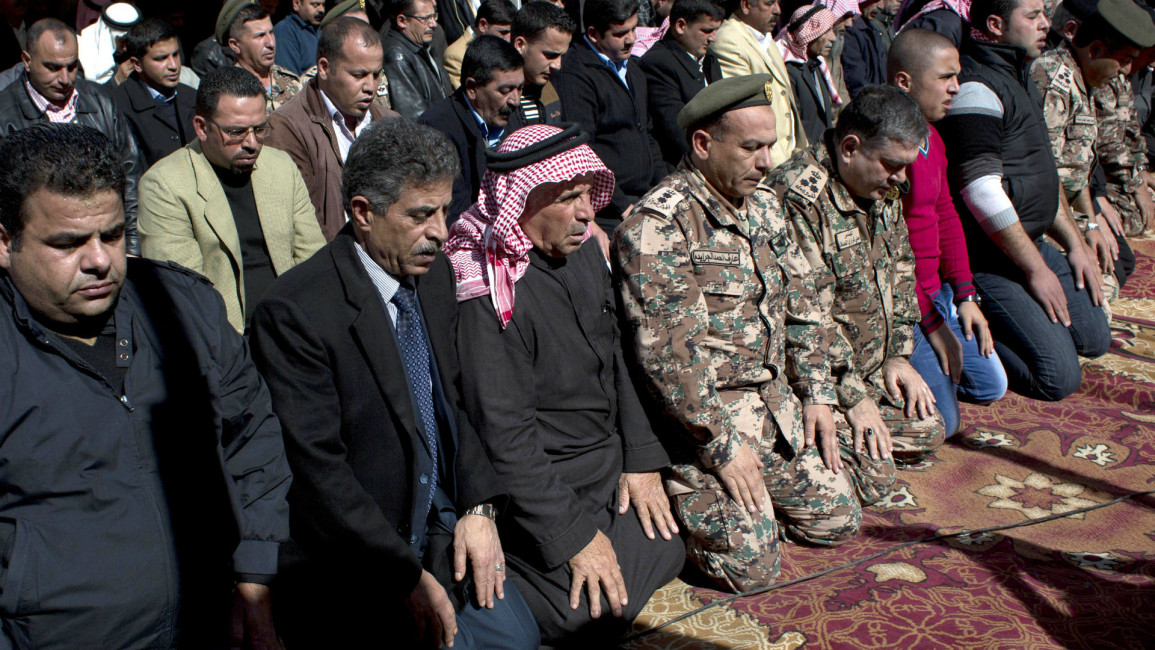
Moaz, the martyr from Liwa Ayy
I entered the Jordanian city of Karak and was greeted by a sombre silence. It deepened as I headed west towards Liwa Ayy, the hometown of Moaz al-Kassasbeh, the Jordanian pilot killed by the Islamic State group.
Such is the gravity of events that every Karak resident I stop points me in the direction of Liwa Ayy, so sure that every stranger passing through must be heading there to offer condolences.
The condition of the road to the village worsens the closer I get. It is narrow, pothole filled and barely paved. The road indicates that the village is forgotten.
Shabby houses finally appear at a distance and Abu Yaseen al-Rawashdeh, an old man in his 70s who is a member of al-Bararsheh tribe to which the late Kassasbeh belongs, points me in the direction of the village.
As I leave he says: "May God have mercy on him, may God grant his family patience, may God grant him heaven."
Traffic police regulated the convoys of cars that created a huge traffic jam that would probably be remembered in the village for generations. Whenever I asked about where the condolences were being received I am told "may God have mercy on him, this way".
| May God have mercy on him, may God grant his family patience. Abu Yaseen al-Rawashdeh, villager. |
The village's shabby houses are telling of people who live a meager life. Many here find refuge in the army as it can provide a reasonable living.
Wide tents were set up in the middle of the village to receive the men who came to offer their condolences, but they could not fit all mourners.
Close by, the Kassasbeh family home received the female mourners. One said: "We celebrated in this house six years ago when Moaz joined the army."
Safi al-Kassasbeh, Moaz's father, is surrounded by mourners. He stands tall but his eyes betray his devastation. He tries, and fails, to hold back his tears whenever his son's name is mentioned.
Safi comes from a society where men remain strong in public. A Jordanian proverb says: "A man's hurt is difficult, and his tears are precious."
A line of visitors snakes through the mourning tent. Each mourner recites poetry praising Safi's endurance and wills his son's ascent to heaven. To each one, Safi repeats: "God suffices me, for He is the best disposer of affairs."
Moaz's three brothers sit close by, still visibly shocked by what has happened, their eyes reddened from crying.
Soldiers come to pay their respects for a fallen brother in arms, the anger in the faces obvious.
Wails fill the women's hall. Moaz's mother is there, after returning from hospital, where she and two of her daughters were treated for shock.
This village, a tiny down-at-heel settlement at the end of a dirt road, was unknown before Kassasbeh's murder. Now it will forever be known for "the martyr Moaz, from Liwa Ayy".
This is an edited translation from the original Arabic.




